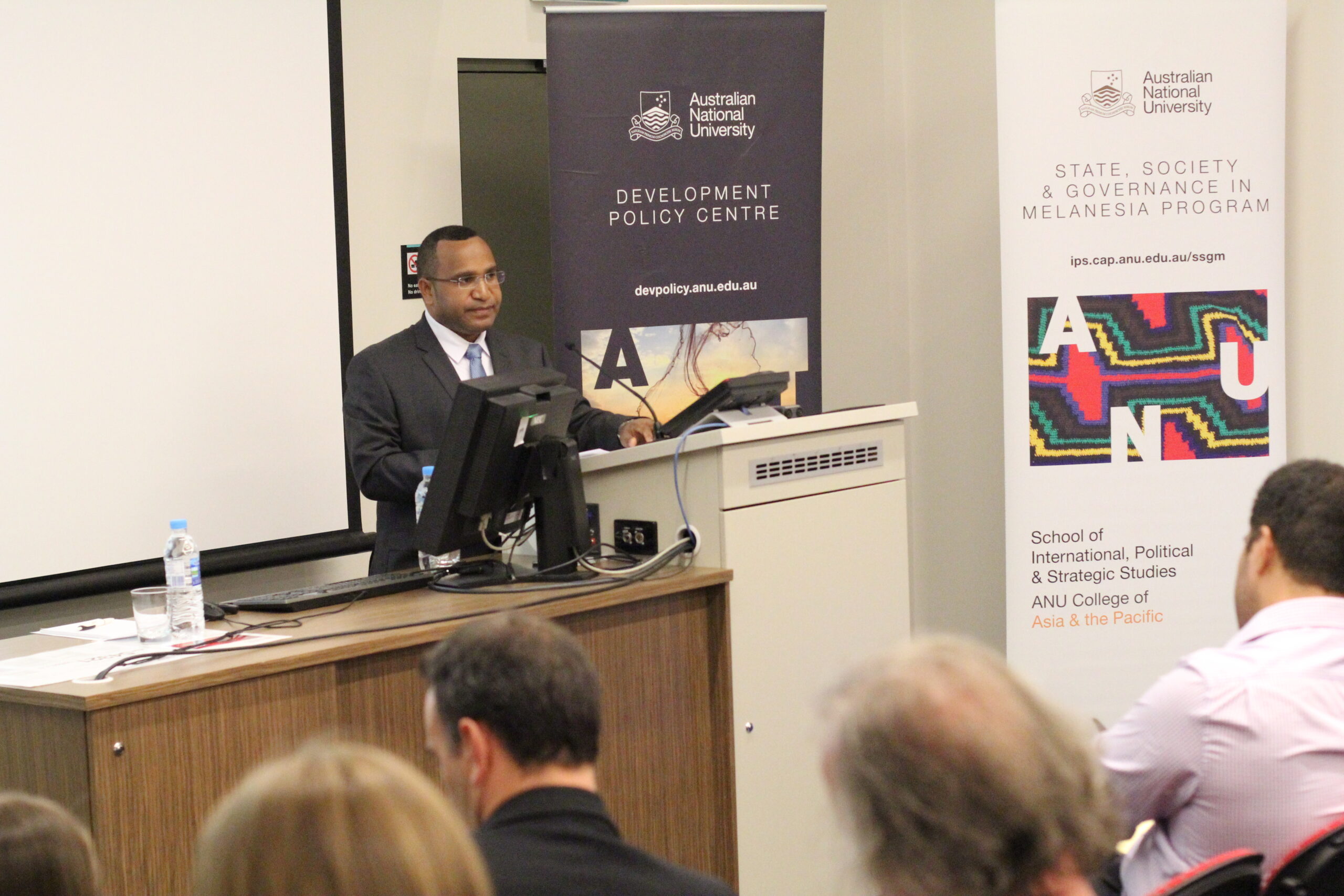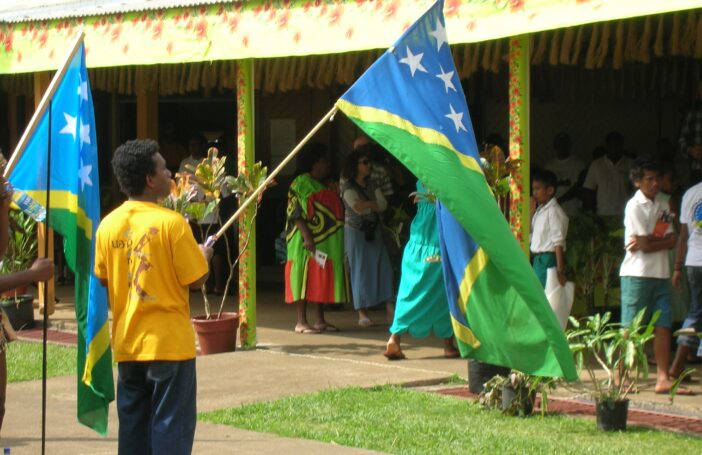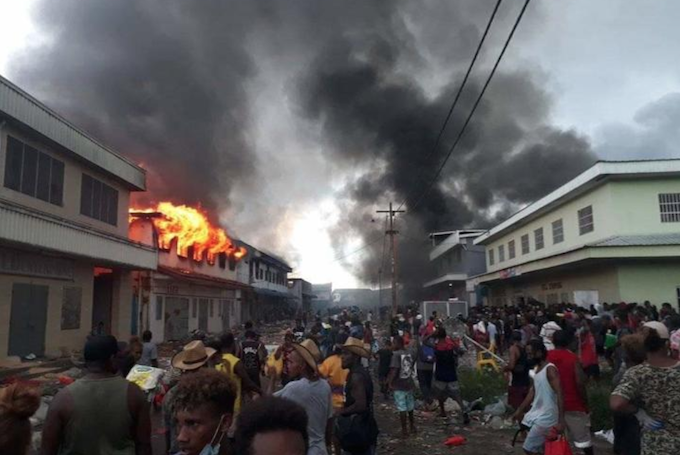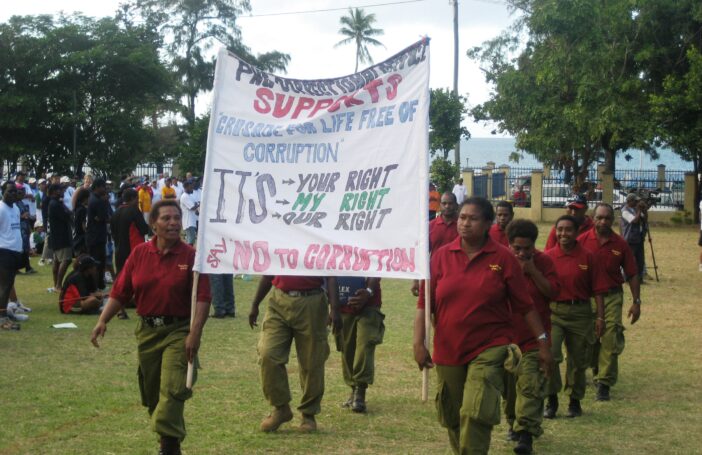I would like to share with you some of my experiences in fighting corruption in Papua New Guinea. My story is not unique. Stories like mine are unfortunately replicated across far too many countries around the world. I have dedicated the last few years to combatting corruption in PNG. My journey, though dangerous at times, and uncomfortable and unpleasant for my family, has been personally rewarding in ways that I could never have imagined.
The challenges of fighting corruption in PNG
The challenges of combating corruption in a resource rich, communal, yet diverse cultural setting such as PNG, are multifaceted. Here I outline some key factors that make the fight against corruption in PNG challenging.
The first challenge is cultural. In PNG the big man syndrome – the perception that leaders in responsible government positions are beyond reproach because of their elevated status in society – shapes relationships. There is also a lack of national consciousness. Many people think in groups, such as tribes, instead of as a country. Because of our communal living, an attack on an individual is seen as an attack on the group. Sometimes corruption rewards the group, hence the group is ready to defend the corrupter.
Others believe that corruption is a behavioural pattern that always appears as a consequence of institutional failure. Yes, that is true. But I see corruption as a behavioural pattern built over time because of a lack of foundational, values-based education. Corruption is a human condition, and we have to study how to train up a child in an appropriate way to respect himself and respect others and their property. People must be taught to do the right thing.
PNG suffers from poor demand for accountability. Owing to the fact that the majority of Papua New Guineans are illiterate, there is little awareness of the public’s right to demand better goods and services. The public also does not have the information available to hold the government accountable. We need a Right to Public Information Act that would allow citizens to have access to public information.
There are also a number of legal issues that undermine the fight against corruption. The judiciary provides oversight to the enforcement of the law. Those who genuinely feel that their rights are denied or the process was improperly invoked can seek a judicial review of that decision: that is allowed under the system of justice we have. However, it amounts to an unnecessary interference in law enforcement when lawyers engage in legal ingenuity to fish for grounds to get their clients off the hook at all costs, regardless of the true facts. To compound the problem, the judicial process is long-winded and if the court has been misled, cases can be trapped in the convoluted judicial process, frustrating law enforcement.
PNG also suffers from a number of legislative gaps. There are obvious examples where public officials openly display the proceeds of corruption. We need an unexplained wealth legislative framework to conduct a means test on those public officials.
The fight against corruption is further undermined by structural weaknesses in state institutions. Political patronage is one of the factors that has, over time, weakened state institutions to such an extent that the line between the bureaucracy and politicians is blurred.
The PNG Auditor-General continues to produce report after report detailing the abject failure of the PNG public service to prevent misuse of public funds. The Parliamentary Public Accounts Committee has noted in multiple reports that most of the public service now spend so much time and energy actively engaged in fraud and corruption that they have little time or incentive to actually deliver services at all. Quite literally, in some departments almost every officer is engaged full-time in attempting to extract public funds out of government accounts.
In PNG, there is a new trend whereby institutions of government, independent institutions, are influenced to abuse their own roles just to preserve a few individuals. That erodes public confidence in state institutions. People then resort to informal means of addressing their issues.
The structural changes required to address this situation requires a total re-think of the way that public funds are disbursed and services are delivered in PNG. Without a proper diagnosis of the causes of institutional failures, a new set of structural reforms that will subject the bureaucracy to more political control – including proposed reforms to allow MPs to appoint their own departmental heads – could be disastrous. Institutions of government need to be appropriately empowered with the necessary resources and skilled manpower to fight corruption.
Fighting corruption is difficult because of the complex nature of corruption itself. Higher levels of corruption, such as grand corruption, are complex in nature and need specialised skills to uncover. Sometimes the fight against corruption is a double-edged sword. When you uncover certain trends and deal with them, they can develop into more complex forms to tighten their grip.
Indeed, corruption flourishes in secrecy. Those who are aware of corrupt activities going on in their organisation rarely report for fear of reprisal. PNG needs, but is yet to have, whistleblower protection legislation in place. PNG also lacks a vibrant media with investigative reporting to utilise the freedom that is guaranteed under the Constitution. The growth of social media has now opened new opportunities for exposing corruption.
Corruption is also transnational making it difficult to address. Cross-border corruption and money laundering are becoming common, yet are rarely curtailed because of jurisdictional and sovereignty issues.
A recent report by the One Campaign suggests that the developing countries of the world lose a trillion dollars every year to illicit financial flows. All of which end up in banks and as assets in stable economies in the developed countries of the OECD. Yet in 2013, countries in the OECD only contributed US$134.8 billion in overseas development aid to developing countries.
We need support and courage
High-level corruption mostly involves politicians, hence fighting corruption requires genuine and consistent political support at the highest level in order to succeed. Fighting corruption is a politically-charged battle, which is won through genuine political will. In order to have trust in the political will, the provider of that “will” must run a clean government.
The fight against corruption cannot be successful without support from non-state actors. We need an independent and vibrant civil society, media and union organisations who provide unbiased criticism to corrupt activities. We need a group of civic-minded citizens who must rise-up and care enough to do something about the prevalence of corruption.
The fight against corruption must never be thought of as one-way traffic. Corruption does fight back. In ideal societies, you would expect that individuals who are the subject of corruption scandals will own-up and submit themselves to the established processes. But in PNG, we are facing ingrained resistance to accountability, whuch is adding another layer to the challenge.
As a result, fighting corruption in an environment like PNG needs not just consummate professionalism, but courage. There are two elements of that courage. First, we need courage to pay the price. Many people fear retribution, be it the fear of losing their job, perks and privileges or being alone or losing their lives. In a small country where the job market is limited, the government is the major employer and contractor. Those who control the systems may be part of a group: you try to attack a group and you become their enemy. Second, we need to be clean: the corrupt cannot fight corruption. They will dig your grave and hunt you to your tomb. If you have no skeletons in your own closet, you will not fear anybody.
From my experience, when you raise the anti-corruption temperature in a country like PNG it starts to make people uncomfortable. If the temperature is too hot and you get a bit too close to the sun, you get burnt. PNG needs more men and women of courage to stand up for their country, even at a personal cost. Honesty can be costly, but you have to stay the course.
God bless.
This is a truncated version of Sam Koim’s presentation made at The Australian National University on 27 November 2014. The full podcast version of his speech can be found here. Sam Koim’s visit was sponsored by the State, Society and Governance in Melanesia program and the Development Policy Centre, ANU.
Sam Koim is Chairman of the multi-agency, anti-corruption body Taskforce Sweep and Principal Legal Officer at the Department of Justice and Attorney General, Papua New Guinea.






Good analysis of the various conditions underlying corruption. Most of those conditions underlay corruption in other countries too.
Does PNG have a Corruption Eradication Commission? This has had a small impact in limiting corruption in Indonesia and Timor-Leste (that is why corrupt elements attacked Indonesia’s Corruption Eradication Commission last year).
Are provincial governors elected by parties or directly? In Indonesia, governors are directly elected by the people, a system which occasionally allows honest politicians like Jokowi (before he became president) and Ahok to be elected as governors, based on their popular reputation rather than their influence (wealth) in a party.
Indonesia and Timor-Leste are far, far from perfect but they may still offer some lessons.
I enjoyed what you wrote, this is the very same thing happening in Malawi. Corruption is at its peak, the elite being in the forefront of misusing the public funds.
Paul some good questions there. Yes we may hope that PNG will evolve over time to be better than it is now. Sam Koim stands as an encouragement. However that is not to downplay the fact that PNG should have learned from others (countries) that have gone before her. The recent events worryingly suggests that the fight against corruption may not be a priority among the political elites – or to rather, it is more in words than action.
Sam Koim has effectively outlined the symptoms and problem. How will PNG overcome these impediments is the question?
Clearly many in PNG have decided that ‘if you can’t beat ’em, join ‘em’, and just given up.
The judicial process introduced into PNG by Australia was at the time in ‘sync’ with an independent and accountable public service and a disciplined and clearly viewed independent system of law enforcement.
Discipline and law enforcement are now out of ‘sync’ with the judicial process, the legislature (Parliament) and the executive (Senior Public Servants).
No one should suggest that so called ‘western democracies’ don’t have similar problems about corruption and malfeasance. It has taken centuries of trial and error to establish any anti corruption processes and to develop sufficient public awareness and information systems to inform those who want to be informed.
Apparently it’s not possible to make a quantum leap forward without a sufficient amount of coercion and pain. You only have to look at countries like China for an example.
But is this the type of methodology that PNG must endure in order to change the current paradigm and would it work with PNG cultures anyway?
However, while communal decision making is traditional the George Orwell scenario that ‘some (end up) more equal that others’ seems to always present itself doesn’t it?